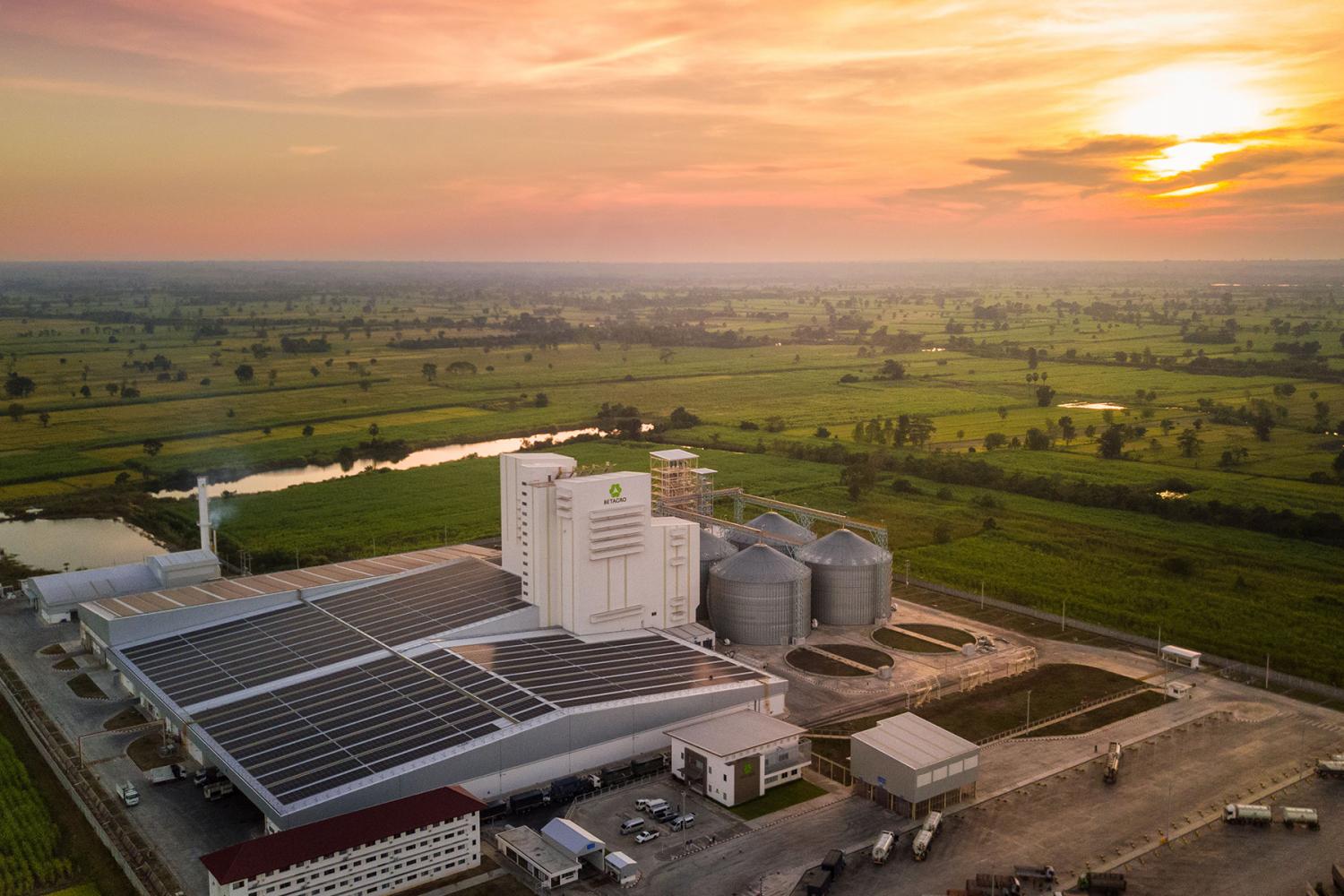
Betagro Plc (BTG), the country's leading branded food company, is launching an advanced feed mill in Nakhon Ratchasima to elevate its agro-industrial business group's supply chain.
The company said the 1.4-billion-baht Betagro Feed Mill in Nong Bun Mak is the first fully intelligent plant to employ new technology in the production process and resource management with Internet of Things (IoT) connectivity and automation.
The smart factory is aiming for sustainability through the adoption of environmental, social and governance (ESG) principles.
The increase in annual production capacity to more than 600,000 tonnes raises Betagro's combined feed production capacity by 18% to more than 4 million tonnes per year. This should bolster the group's competitiveness and sustainably meet growing demand for animal feed, according to a company statement.
Vasit Taepaisitphongse, chief executive and president of BTG, said the development aligns with the firm's policy to upgrade its supply chain from the upstream phase to downstream under a proactive sustainability theme.
The plant in Nong Bun Mak is BTG's third-largest feed mill. It produces a variety of animal feed for swine, egg-laying hens and broilers. The mill is running at 48% of its production capacity at present and the rate will reach 100% by year-end, said Mr Vasit.
The mill is equipped with modern technology to enhance management, including a factory management system, sampling and quality inspection system, automatic controlled raw material storage system, an automatic raw material storage and conveying system and uses robots for packing and conveying.
Mr Vasit said the smart factory is also helping to build strong social foundations by creating opportunities for farmers to grow together, providing jobs in the community, and upgrading the tech skills of local people.
The mill promotes the use of clean energy that is environmentally friendly, such as solar rooftop panels that contribute about 20% of the plant's 2.8-megawatt clean energy output, reducing carbon dioxide emissions by about 1,900 tonnes per year.
Mr Vasit said the trend in the animal feed industry in 2023 is continued growth, with the Thai Feed Mill Association projecting a 4.8% gain from 2022 to 20 million tonnes, resulting from increased demand for swine, broilers and egg-laying hens.






